
Did you know that employers from any industry are looking for candidates with strong personal skills? Having a good set of personal skills allows you to shine and stand out from the other candidates when you’re searching for a job. Why? Because your personal skills demonstrate your personal development, which reflects who you are, and what you’re passionate about in life.
It’s not rocket science that who you are and what motivates you will also influence your everyday life, including those who are around you. Which explains why personal development is just as important in your professional career, as it represents how well you understand your own strengths and weaknesses.
Personal development revolves around the concept of life-long learning in which an individual continues to assess their life goals, purposes, and values as they grow. In the meantime, they also develop the skills and qualifications required in order to reach their full potential.
Personal development skills can be trained through education, getting advice from mentors and trainers, self-help, and more. In other words, personal development helps you at acquiring the necessary skills to maximise your potential. As a result, these skills will greatly contribute to your professional growth and goals, ultimately leading you to achieve your personal and career advancement.
You’re more likely to succeed in life when you have strong personal skills, as it reflects your passion for the job you’re doing, helps motivate you to finish all of your assigned duties, induce willingness to help your colleagues in completing a project, and more!
Personal skills, often known as ‘soft skills’, are completely different in comparison to professional skills, also known as ‘hard skills’.
Personal skills are those related to your personality and behaviour, which cannot be quantified, such as communication skills and leadership skills. Employers often look for candidates with a good set of personal skills. This is why you need to also highlight these in your resume. It’s also best to describe your soft skills experience during your interview, paired with specific examples.

On the other hand, professional skills are those that your employers can easily measure, such as programming skills, graphic editing skills, copywriting skills, and more. These skills can usually be acquired through education, courses, on-the-job training, and certification tests. You can demonstrate your hard skills by preparing a related portfolio to showcase the previous work you’ve completed.
As the name suggests, communication skills are important for receiving and delivering messages/instructions in a clear and precise manner. These include your writing, listening, and speaking skills. When you have a good grasp of these skills, they allow you to confidently communicate your ideas and feelings using an appropriate tone suited to the situation you’re in.
Organisational skills are skills to manage and tidy up your physical and digital workspaces, including your ability to organise a well-planned schedule according to priority. With good organisational skills, you’ll be saving more time, have a significant increase in productivity, and reduce the miscommunication rate in the workplace.
Problem-solving is your ability to gather information and make the decision to handle challenging situations that may arise out of nowhere. As a great problem-solver, you’re expected to find the most efficient solution and make the best decisions to overcome any obstacles you’re facing. Hence, learning how to stay calm, gather and analyse data and information, as well as assess facts and opinions, are essential to being a good problem-solver.
Leadership skills are essential when you’re in charge of managing a project. Good leadership skills help you to guide your colleagues in moving forward to reach a common goal. Now, there’s one important thing to keep in mind: Being a leader is different from being a boss. Why? Because other than delegating tasks to ensure things sail smoothly, a good leader will help motivate their team members, build their confidence, and improve the team’s overall morale.
Having good time management skills allow you to accomplish something big within a short period of time. In other words, time management skills help you save more time, allowing you to focus and be more productive on the tasks at hand. As a result, you’ll be able to acquire a better work-life balance.
Having compassion in the workplace shows that you’re willing to help, care, and share the pain of your colleagues when they’re in need of assistance. Compassion is a combination of essential elements to tend to individuals in need, such as care, empathy, and love. Showing compassion to your colleagues who are in pain or are undergoing some personal stress will make them feel more secure and comfortable at work.

When you’re willing to commit to the people and things that matter to you, including your career and the company you’re working with, it’ll tremendously help improve your workplace relationships. As a result, these personal and professional growths will help you to be more successful in accomplishing your goals. When you’re committed to something, you’ll also enjoy the time you spend working on things you’re passionate about!
Having a good work ethic is one of the most important personal skills that all employers are looking for. Candidates who are ethically positive, hardworking, and honest will essentially increase an organisation’s overall morale. These will result in motivating and promoting fairness and decency among the employees, which ultimately leads to greater productivity and enhances a company’s performance.
Now that you understand how personal development skills can be beneficial to both your personal and professional lives, don’t you want to acquire them right away? But as previously mentioned, personal development skills are not something you can learn overnight with mere training alone.
So how can you start to practise these personal development skills in the workplace? Well, let’s take baby steps and begin by being a better listener in the workplace. We should also learn to be more cooperative so that we can work well with others. Learn how to organise and manage your time, tasks, and workplace materials. When you’re faced with challenging situations, remember to believe in yourself and the decisions you’ve made.
As a leader (or if you’re aspiring to be one), you should always be truthful to your colleagues and team members and are willing to guide those around you. Your workplace environments are forever changing, so learning to be flexible and quickly adapt to change is essential. Lastly, learn to love your job and career. If you’re committed and passionate about what you do, the people around you (yourself included!) will be more reliable and productive when it comes to working.
As difficult as personal growth and development can be, investing in yourself will always help build a solid groundwork for your professional career. And as the Queen of Jazz, Ella Fitzgerald, once said, “Just don’t give up trying to do what you really want to do. Where there is love and inspiration, I don’t think you can go wrong.”

You’re finally done catching up with all your work and tasks off your to-do list. You’ve even cleared out all the emails in your inbox, ensuring that all queries have been answered. So, you’re probably safe to step away from your office for a few days, right? Well, the answer to your questions is – crafting out an out-of-office message.
Now, what exactly are these? Out-of-office messages are autoresponder messages that notify those trying to reach you when you’re out of the office. It may seem like an easy task, but an out-of-office message states more than just when you’re away from the office. If your message is written in an unclear and vague manner, it may cause some communication issues while you’re away from your workplace.
Writing a good out-of-office message will inform your colleagues, clients, and business associates as to why you cannot respond to them immediately. It’ll also let them know when they’ll be able to reach you, and how to proceed with urgent matters in the absence of your presence. Now, don’t worry if you’ve never crafted an out of office message, we’re here to tell you all the things you need to know!
Beginning with the things to avoid in your out of office messages. A good out of office message often excludes the following details:
An automatic reply shouldn’t be too complicated. Your receiver doesn’t need to know about the exact plans of your time away from work. Simply noting that you’ll be away, let’s say for a business trip, is sufficient.
When you’re away, it’s only natural to assume that there will be work pilling up for you to attend as soon as you’re back to work. Hence, avoid setting an expectation that you’ll be able to respond to the missed message immediately upon your return. It might take you some time to finally catch up to their messages on top of all the other emails, calls, and projects when you return to the office. However, keep a lookout for all messages. You don’t want to let a message sit too long in your inbox going unanswered.
It’s important to include your colleagues’ contact information in case of emergency, but don’t ever promise their immediate assistance. You couldn’t possibly ensure how quickly your colleagues may be able to respond to your emails in your absence. In addition, make sure that you’ve gotten your colleague’s permission before including them in your messages. You don’t want to catch your colleagues by surprise!

It’s always better to include both the leave and return dates, as it informs people how long you will be away from your workplace. Your recipients probably want to know when they might get a proper response to their queries. Just think about how many emails and messages will be waiting for your return. You might take more than a day to be even able to read and reply through all the crucial messages waiting to be answered.
Always, and we repeat, always include your job title and some personal information in your out of office messages. Sometimes people may mistake you as the person in charge when they’re actually looking for your colleagues in another department. It would save their day if they could have contacted the right person sooner instead of waiting for your reply.
It’s always best to mention alternative contact information in case of an urgent matter. You should include your colleague’s name, phone number, and email address, who covers for you while you’re away. If you handle multiple scopes in the office, specify their expertise, so people know exactly who to find when needing assistance.
If you’re able to check your incoming emails from time to time while you’re out of the office, it’s better to include this in your out of office message. Similarly, if you’re never really away from work, include ways to reach you. However, if you’re unable to look or attend any emails while you’re gone, do not give people any false hope that you might be able to get back to them.
Remember when we said you should avoid giving too many details in your out of office messages? You should always include the reason for your leave but avoid being too specific on the details of your absentees.

This is probably the most common out of office message of all time. From time to time, you’ll probably take on some annual leaves, and even if you don’t, you’ll probably be forced by the HR Department to take some.
Hello!
Thank you for your email. Unfortunately, I am on vacation from [date] to [date] and will be happy to assist you in your queries upon my return. If you require immediate assistance, kindly contact our Customer Service at [email].
Hi,
As much as I would like to help, I cannot give you a quick reply. I am on my annual leave starting from [date] and will return on [date]. If you have any urgent matter, I suggest contacting [Name] at [email] for a quicker response.
Greetings,
Thank you for your email. I am away on vacation from [date] and you can expect a response when I return on [date]. Please contact [Name] at [email] or [phone] for urgent inquiries.
Hello,
I am on my annual leave and will be out of the office from [date] to [date] with limited access to my email. I will reply upon my return. For urgent matters, kindly contact [Name] at [email] or [phone] for their attention.

Sick leaves are also pretty common in any workplace. One wouldn’t be able to predict when they’ll get ill, so an out of office message is a must for this occasion.
Hello,
I’m sorry to inform you that I’ll be out of the office from [date] to [date] because of my illness. In the meantime, do contact my colleague at [email] for urgent queries. Take care!
Hi,
I’m currently unavailable and have no access to my email. I hope to return by [date] and be able to assist you as soon as possible. However, if you need any assistant before I get back, kindly contact [Name] at [email]. [Name] will be more than happy to assist you.
Hello,
Thank you for your message. I’m on of the office on medical leave from [date] to [date]. I will be checking my email from time to time, but as of urgent matter, kindly contact [Name] at [email] or [phone] for all your queries during this time. I appreciate your understanding.
Hi there,
I will be away from my desk from [date] and I hope to return by [date]. For any urgent matters, don’t hesitate to get in touch with my colleague [Name] at [email] or [phone] to answer your questions. Thank you.

This is one of those special occasions where you just don’t want to be disturbed with work emails and messages. You’re usually out of the office for a long time, so make sure to include the fact that you wouldn’t be monitoring your emails during your time away.
Hello,
I’m on maternity/paternity leave and have no access to my email between [date] and [date]. During my time away, do contact [Name] for any urgent matters.
Dear Sir/Madam,
I have gone on paternity leave from [date] to [date]. During my absence, [Name] will be covering for me. You can reach him/her by sending an email to [email].Thank you for your kind understanding.
Greetings,
Thank you for your message. I’m out of the office from [date] to [date] for maternity leave. If you need assistance while I’m away, please contact [Name] at [email] or [phone] for any queries. He/She will be happy to help.
Hello,
I will be away from the office due to maternity leave, with no access to my email. I’m away from [date] and will be returning on [date]. For any immediate assistance, you may reach me at [phone].

If you leave your office for work-related travel, you should still be able to receive emails and respond to them. However, you should make it clear that your responses will be slightly delayed.
Hi,
I’m currently attending a training session from [time/date] to [time/date]. I will be checking my emails in between sessions. It might take a while for me to respond. For any urgent matters, please call [phone].
Dear recipient,
Thank you for your message. I’m out of the office attending the [event] conference in [place]. I’ll be checking my inbox periodically, but please contact me at [phone] if you need immediate assistance.
Hello,
I’m currently unavailable as I’m attending [event] from [time/date] to [time/date]. Though it might take a while, I’ll respond to you once available. For immediate response, please call at [phone]. Thank you.
Hi,
Thank you for your message. I’m currently at [event] and will be sure to check my email in between sessions. I apologise if my reply might take longer than usual. I will be able to respond in a timelier manner after the event starting from [time/date]. In the meantime, kindly contact [Name] at [email] for any urgent matters.

Sometimes, a short and professional out of office message is all you need to communicate the main reasons for your absence.
Hi,
Thank you for your email. I will be away from the office from [date] to [date]. I have limited access to my email and will not be able to respond immediately. Kindly contact [Name] at [email] or [phone] for urgent queries.
Hello,
I’m out of the office from [date] until [date] with no access to my email. Please contact [Name] at [email] or [phone] if you require immediate assistance.
Greetings,
I’m currently away from the office starting [date] to [date]. I will be checking my email from time to time. However, if there are any urgent matters to be attended to, kindly call [phone].
Dear recipient,
I will be away from my desk from [date] to [date]. For any urgent matters, you can contact [Name] at [email] or [phone]. Thank you for your understanding.
Having an out of office message shows your professionalism in handling work emails even when you’re gone. A thoughtful automated response is a thoughtful way of letting people know how long you will be away and when they can expect a reply. Receiving an out of office message can surely reassure them that their queries will not go unnoticed.
However, keep in mind that the out of office messages are supposed to be helpful and not hinder you and anyone looking for you. Even If you’re someone who regularly clears out your inbox messages, all these messages while you’re away will probably take more than just a day for you to attend. So (and we can’t stress this enough), DO NOT set unrealistic expectations for your recipients.
Lastly, out of office messages are more than just a formality. Set it up accordingly, and it’ll be working for you in answering simple questions of “Why you’re away?” and allows you to be worry-free of the emails that come in while you’re away.

The word ‘team player’ is one of the most frequently discussed terms in the corporate industry. A team player essentially refers to a person who is reliable and works efficiently within a team setting. A team player is also able to take on additional assignments for accomplishing team goals. Organisations often look for team players during recruitments as having such employees significantly improves the team’s performance.
In any workspace, having a good team player can be quite beneficial since they make significant contributions to the success of any business. A good team player is helpful in times of crisis like conflict management and are excellent problem solvers.
They can also boost morale by inspiring others in the team and encouraging them to take initiative towards reaching a goal. Furthermore, a team player keeps the team functioning smoothly, and helps reach desired accomplishments.
As important a team player is to a team, it’s not very easy to be one. Being a good team player can be challenging. However, keeping in mind these 18 qualities of an excellent team player, anyone can be an asset to their teams in no time!
To be a good team player, it’s crucial to be aware of the job role and its entitlements and responsibilities. It’s with a good understanding of the job role that a team player can meaningfully contribute to the team’s assignments, help the team function smoothly, and help progress the business towards greater achievements. Understanding the job role is also helpful in streamlining the work and collaborating with other members of the team.
A team player with a good understanding of the industry can grasp the purpose and urgency of assignments better, figure out creative solutions, and help the team accomplish desired business goals sooner.

The primary aspect that sets a team player apart from others is the ability to work in a team-based environment. Being a team player requires an individual to be able to work collaboratively with others, welcome diverse ideas and solutions, and work together towards a common goal. Their ability to collaborate with others significantly improves the team’s productivity and contributes to maintaining harmony and goodwill within the team.
Active listening is one of the most essential qualities of a team player. Active listening allows an individual to understand and focus on the task at hand, understand the purpose and the urgency of the assignment, and appropriately prepare for the same. Active listening is also beneficial when dealing with other members of the team, having a clear grasp on their abilities and shortcomings, and helping the team wherever necessary.
Holding oneself accountable is a great professional strength that can be used to motivate yourself and others around you. It’s important for prioritising a goal and realise its purpose. In addition, it can prove to be effective in evaluating the quality of work, supporting the team, and bringing about lasting improvements.
No workspace is free from problems or conflicts. However, as a team player, it’s important to be able to solve problems when the need arises. Problem-solving is a quality every team player must have to be able to help the team run efficiently by resolving conflicts and managing crises.

A team is often composed of people with varied ideologies and opinions. Staying flexible can be effective while working in a team because it ensures that one is welcoming of different ideas and solutions, and it also helps avoid major conflicts within the team.
The office can be dull and dreary at times. However, having a positive attitude can go a long way! As a team player, it’s vital to have a positive attitude. It helps all team members recuperate from failed ventures and professional losses, build morale, and move on to the next assignment with more vigour.
Committing to the team is essential when it comes to being a good team player. Committed team players are great assets to the entire team, helping the team get through with tasks, and reach goals. In addition, committed members make decisions that benefit the organisation and enhance team performance.
Engagement is one of the most important qualities of team players. It boosts conversation within the team, helps in figuring out viable and creative solutions, and assists in overcoming conflicts in the workplace better.
Reliability is among the primary aspects that corporations look for in team players. Reliability in the workplace usually refers to the ability to follow through with their promises and abilities, helping the business forward.

As one of the fundamental personality traits, being respectful of the workplace, towards colleagues, and other associations is not just restricted to team players. While working in a team-based environment, however, being respectful is crucial. Being respectful towards one’s assignments and colleagues is not just polite, but it invites respect in return.
Working in a team is not always a cakewalk. Being intrinsically motivated is important for team players to collaborate and work in teams, it ensures a higher level of accountability within team players and is important for raising morale and boosting productivity to accomplish a common goal.
While working in a team, honesty is certainly the best policy. Honesty plays a vital role in creating trust within the team, making a suitable work environment, and ensuring smooth functioning within the team.
Being detail-oriented is another important aspect of being a team player. It allows the individual to manage tasks with enhanced proficiency and reduces the chances of errors. Being detail-oriented usually refers to the ability to pay close attention to minor details and make necessary adjustments to errors before they snowball into a bigger issue.
Team autonomy is a quality that allows better communication and engagement within the team, improves team management, and benefits the team in terms of performance.
Being persistent is one of the most valuable qualities that a team player can have. It enables the team to keep functioning even in adverse situations, keep up spirits, and emerge out of difficulties much stronger as a team.
Self-awareness is one of the greatest qualities of any team player. It shows that you recognise your strengths and weaknesses. Self-awareness allows an individual to accept their limitations, master their stronger skills, and apply them productively to assist the team. Self-awareness also brings about personal growth in the workspace.

A team player is appreciated and valued by every organisation worldwide (who wouldn’t want someone who can get along with anybody plus is supportive and helpful?). Regardless of the academic excellence and professional experiences you had, if you’re not a team player you will find it hard to adjust in any setting and will rarely achieve professional satisfaction.
It’s, however, not at all difficult to become a team player. Just keep the above-mentioned points in your mind and you can easily be the team player that your colleagues and peers look up to! Also, look for these traits when you hire employees for the teams in your company. It will help your business grow and achieve your goals faster. After all, a company is like a ship that requires all hands on board to move forward.

Decisions, oh, decisions. Our lives are full of situations where we’ll be forced to make decisions, whether for better or worse. Having the skills to help you choose the best path/solution is one of the most important traits in life. Why? That’s because making sound and logical decisions will help contribute to both your professional and personal success. Some decisions may be harder than most, and these usually come with heavier consequences, thus making you doubt yourself. However, trying to escape from the responsibility of having to make a decision is not the right way either.
No entrepreneur or renowned leader will ever say that they’ve never made a wrong decision in their life before. In fact, there’s a saying which goes, ‘to err is to be human’. Instead, they’ll tell you that you can choose to adopt multiple ways and techniques to improve your decision-making skills, which will ultimately make you a better person and positively impact your life in every aspect!
So, what exactly is a good decision-maker? He/she will make decisions based on logic and rationality, rather than acting on emotions and impulse. And precisely because of that, part of their decision-making process involves doing research and understanding the consequences of the choices made. By doing so, they know what’s best for them, and will not let personal biases get in their way.
Open-mindedness is one of the common traits that all good decision-makers have. When needed, a good decision-maker will involve others who are trustworthy, in order to rely on their wisdom and opinions in making the right choices. Sometimes, you make decisions not only for yourself, but for your career as well as on behalf of your company and colleagues. Now, imagine what would happen if you didn’t think things thoroughly, and made one wrong move that would have dire effects on everyone involved!
Like it or not, we’ll always have to make lots of decisions in life, especially as we grow older and have more responsibilities at work or home. It’s common for us to thus feel overwhelmed, stressed, and confused when it comes to such situations. Because of these emotions, we often become more indecisive as the situation gets worse, and the long-term impact is that it may cause us to lose confidence in ourselves.
Indecision in life may negatively impact how we feel about ourselves, so it’s always important to take note of the strategies and techniques in making good decisions during these challenging times. As such, honing skills to help you analyse a situation quickly and competently will allow you to choose the paths that will ultimately lead to the best possible outcomes.

It’s always good to know your own goals before you start strategising in making an effective decision. Understanding why you’re making that particular decision, what purpose would it serve, and how it may affect the problem at hand will undoubtedly help you to make better decisions. In this way, you’ll get to stay focused on what’s important when deciding on the path to take.
It’s always good to gather information that’s directly related to the problem before deciding on a solution. Doing so helps you better understand what needs to be done, as well as generate possible ideas and outcomes of the decisions you’re about to make.
While doing as much research as possible sounds like it should be enough for you to make a good decision, it really isn’t! This is because it’s all just raw data, so another thing to consider after you’ve gathered information is to seek the opinions of people you trust. Be it a friend, family, or experts and professionals, these are the people who can assist you in coming up with better solutions.
The more choices you have, the more likely you’ll make a bad call. Your mind might be bogged down by all the information and choices in hand. So, it’s time to carefully go through your list of potential decisions, and whittle it down to just a handful. It would help if you also tried speaking to others about your decision-making process. They might be able to offer fresh perspectives, and open up alternative paths that you’ve never considered.
One of the best things you can do before making a final decision is to consider the consequences of each and every choice. List down all the pros and cons of every option, and try to draw up a quick list of every benefit and drawback the decision could have. Sometimes, doing that helps you to realise which decisions are better than others.
Of course, having as many choices as possible in the early stages of your decision-making process is helpful. But as we mentioned above, having too many of them often leads to confusion. Eliminating as much noise (read: distracting and clashing options) as possible throughout your decision-making process helps reduce the feeling of confusion and being overwhelmed. Leaving only the important ones gives you a better idea of the outcome that you want.

We all know that rushed decisions will usually turn out to be the bad ones. When you decide on your choices too quickly, more often than not, you’re just acting upon impulses. It’s essential for you to take the time (where possible) to analyse every decision before choosing one based on natural inclinations.
But what if someone wants a quicker answer? You don’t have that much time to think! Well, there’s always the possibility of you asking for more time to research and reflect on the info gathered before making the decision. Try asking yourself pertinent questions and doing a comparison for the decisions you’re about to make. Doing so will often eliminate the less ideal options making it easier for you to decide.
We’re bound to make wrong decisions in life sometimes, which may have led to an undesirable outcome. Instead of getting discouraged, you should know that these wrong decisions are the ones that help you to make better decisions in the future because of the lessons that you inevitably have to learn. It also enables you to identify the areas of improvement, and figure out how you could achieve a better outcome next time.
Every decision you make comes with a risk. Even those which you’re already familiar with making! This is because there’s a high chance that you’ve grown accustomed to certain habits that cause you to make these poor decisions. You often don’t need to think much when you’re about to make these decisions, and precisely because of that, it might bring you down the wrong path. For example, you’re so used to sneakily playing mobile phone games everyday at work that you no longer think about it, and just do it. However, one day a HR personnel catches you in the act and you’re given a warning letter due to behavioural issues, and you realise that you made a bad call.
When you’re faced with a difficult decision, sometimes framing your problem in a different way will help. A slight change in your thinking can significantly affect how you perceive the issues. Hearing “80% of people who undergo this professional certification will pass” is better than hearing “20% of people who undergo this professional certification will fail”. The facts are the same, but the latter term is usually perceived to have a greater risk.
When you have to deal with tough decisions, you might overthink the consequences of each of those choices. However, overthinking your choices might ruin your ability to make the right decisions. You’ll probably be overwhelmed by your thoughts if you keep thinking about the pros and cons for too long. Where possible, consider sleeping on your problem and let your brain work through it as you sleep. The correct answer might just come popping in during the night!

We believe that making the wrong decisions is better than not making any decision! Making bad or wrong decisions show us that there’s still room for improvement. When your choices don’t turn out as you expect them to, then it’s time to reflect and ask yourself what went wrong. It’s always good to try and find out what lessons you can glean from the choices you’ve made, but remember not to dwell on your mistakes for too long. It might just harm your mental health.
It’s okay to admit that we’ve all got shortcomings of our own. Sometimes we’re just biased in some ways, and when it comes to listening, most of us prefer to do things the easy way instead of the hard way. Scientists call this phenomenon the heuristic experience (i.e., mental shortcuts that allow people to solve problems and make judgments quickly and efficiently). While these mental shortcuts save you a lot of time in making the little decisions in your life, they might cause you to walk on the wrong path in the long run. Acknowledging this shortcoming of ours may help us be more objective over time.
Once we’ve decided on something, we’re most likely going to cling to that decision. Such is the nature of humans. Psychologists referred to this as ‘belief perseverance’. Admitting that there are better options out there proved that our decisions are wrong or are less accurate. Hence, there’s a good chance that we will develop a certain degree of perseverance, so much so that we believe that our decisions are the only right choices. The best way to make sure that our decisions are correct is to argue with the complete opposite decisions.
In reality, there are more things for you to consider when it comes to making decisions, such as seeking out learning opportunities to hone your skills. For example, you can opt to work with an expert career coach or sign up for a certified decision-making course (yes, there’s such a thing!) that’ll guide you better.
It doesn’t matter if these decisions require very little or a lot of effort, we’re constantly making decisions throughout our daily lives. So, remember to always think things through, and do your best to improve your skills as a decision-maker. We promise you that your life will change when you start choosing the right paths that bring better outcomes.

Goals. A thing that everyone has and/or wants, but not everyone has the drive and determination to achieve them. Simply thinking about accomplishing them can bring a big smile to our faces, but why is this so? Well, the act of setting and achieving goals (no matter how big or small) are one of the things that keeps us going in our everyday lives.
However, no goals ever achieve themselves without proper planning. This is why having an action plan is essential to give you a better and more precise idea of how to accomplish them. Without a well-thought action plan, you might not get the motivation you need to push yourself forward.
So, what exactly is an ‘action plan’? An action plan consists of the steps/tasks you need to do to achieve your goals. It’s a document that details all the necessary steps you need to take so think of it like a clear path towards the right direction, then breaks the steps into a more doable process, and helps you reach a specific target according to the timeframe you’ve set.
A well-thought action plan is helpful not only to you as an individual, but also to your organisation. It helps you to stay focused on your career and personal life, while allowing you to monitor every progress you’ve made to get closer to where you ultimately want to be!
To write a good action plan, set SMART (an acronym for ‘specific, measurable, attainable, relevant, time-based’) goals. Your goals should not only be well-defined with precise details (specific), it also needs to be measured to keep track of your progress (measurable). In addition, your goals should be ones that can be accomplished (attainable), relevant to your needs, abilities, and interest (relevant), as well as have a clear deadline of what needs to be done (time-based).
Often enough, people mess up accomplishing their goals due to delaying taking any action on the tasks for far too long. This is why setting attainable milestones are a crucial part of your action plan. Take a step back and look at the amount of time you have. Start breaking up your goals into smaller tasks so that you can move towards the end goal efficiently.

However, after breaking the bigger goals into smaller objectives, you need to list them down. The list will help you to know which tasks are more important than the others, so that you can start planning your actions in a step-by-step manner. The list also allows you to check if you’ve missed anything crucial while breaking up the bigger objective. Having this list of actions will ensure that all the objectives are attainable and relevant to your goals.
It would help if you created a schedule to ensure all the smaller objectives are in order. Sometimes, smaller goals may have the same due dates. Hence, it’s recommended to create a timeline to smooth out the flow of your progress. Having a schedule helps you keep track of time and rearrange your tasks schedule based on its importance and urgency.
It’s essential to assign the right tasks to the right people. Assessing the strengths and weaknesses of your teammates helps you make better decisions in assigning your team members’ roles and responsibilities. After assigning the tasks, make sure that everyone is in agreement with their responsibilities in taking charge of an objective. It’s also crucial to list down the resources needed in completing the tasks so that the allocation of your resources for things such as money, equipment, and software/programmes will be carried out perfectly.
Monitoring of progress can be done in different ways, including reading internal reports, holding regular meetings, and more. If we don’t monitor our progress, we might lose track of where we are now and what we’re currently doing. The internal reports and regular meetings give us a clearer picture of the direction we’re heading, which helps us keep track of our progress in attaining our goals.
Considering your talents and expertise are crucial to let you know about your own strengths and weaknesses. Looking at our weaknesses might give us an idea of the areas that we can and need to improve. On the other hand, looking at our strengths lets us know how and where to apply our abilities in completing the tasks. Looking at the overall talents and expertise might also give us the idea of whose help we should seek to strengthen our team in accomplishing the bigger goals.
When we have a bigger goal, it’s almost close to impossible to accomplish it all on our own. One way or another, you have to start seeking help from the right people, and build the right team to reach your goals. Remember the point above about looking at strengths and weaknesses? By doing that, you get to allocate tasks that best suit your strengths, and you’re also able to delegate tasks to other people in the areas you’re weak at.
Read more: Great Leaders And Their Company’s Success: 12 Tips On How To Delegate Effectively

Success itself is a mindset. This saying has been around the professional world for as long as anyone can remember. Having a positive mindset is the equivalent of surviving the tough challenges you’ll encounter in the path of reaching your goals. And usually, when you’re faced with a storm, it’s relatively easy for you to stay gloomy and give up on your dreams if you didn’t already develop a positive mindset that helps you see the silver lining in every cloud.
Motivation is what drives us to get to where we want to be! Hence, it’s crucial to keep yourself motivated by setting realistic goals that are attainable and relevant to your life. in addition, surround yourself with like-minded people who’ll be able to push you out of your comfort zone, and remind you of all the tasks you seek to accomplish. Having meaningful and realistic goals will help encourage you to push forward instead of bringing yourself down.
Holding yourself accountable in every decision you’ve made and for everything you’ve done is part of your responsibilities to accomplish your goals and dreams. However, you don’t have to bear these responsibilities alone. You can always recruit people who have the same end goal to be part of your team and split the duties. The idea of holding yourself accountable is not meant to pull you down, but it’s meant to be a boost to keep yourself on track with your goal.
Constructive feedback is always welcome in order to improve your overall performance in achieving your goals. Limiting your horizon based on what you see alone probably wouldn’t help you much on your journey. Hence, seek and listen to both the good and bad feedbacks given by people whom you trust. This will be served as a tool for you to re-assess your own standards and expectations.
To err is to be human. It’s okay if we make some wrong choices in life, which require us to overhaul the whole plans we’ve made. Change is a constant part of life, and it’s vital for you to be flexible and adaptive when it comes to changes. Don’t get blinded by the smaller objectives, which makes you lose focus on the bigger goals. If changing certain aspects of the plan might lead to a better future, it really is okay to do so.
Every time you’ve accomplished something, even if it’s a small accomplishment, do remember to pat yourself on your shoulders. Remember, your journey towards the end goal is long and hard, and if you don’t take a break once in a while, you’ll be all burnt out before you even know it! So, it’s good to lay back and acknowledge these small accomplishments (with a little reward thrown in too). Doing so might motivate you and your team, which boosts the overall morale of your organisation.
Read more: 11 Signs That You’re Having Job Burnout, And Ways To Treat It
Trust us when we say a goal without a plan is nothing but a wish. As the saying goes, “when you fail to plan, you plan to fail”, and that’s just how the real world works. Make sure that first and foremost, your goal is truly attainable and realistic. From there, it’s only a matter of planning the right steps that you can take, and it’s okay to sit down and reset if ever you hit a roadblock or make a wrong turn.
So, the bottom line is, learning to set SMART goals and developing an action plan does help you to achieve your goals more efficiently without wasting unnecessary resources. Plan ahead what you’re going to do, break it down, and set a realistic timeframe. We wish you the best of luck in your future endeavours, and we hope this guide helps you accomplish what you set out to do!

For most people, an office is a place where they spend their days working and friendships made. Whether you work in an office or from home, there may come a day when you need to say goodbye to your co-workers. These farewell messages can be difficult to write and send because there are so many unknowns: When do I send it? What language should I use? How do I make this “mine”?
It isn’t just important for you to say goodbye, it’s also imperative that your co-workers know how much they mean to you. Saying farewell can be difficult and sometimes even awkward, but it’s necessary in order to maintain good relations with the people who were so dear and supportive to us during our time together at work.
You should say goodbye to your colleagues in person, but there may be times when you can’t make it work. This is where farewell messages come in really handy. You can write these messages for a number of reasons: If someone leaves the company or moves on to another team, then they would benefit from hearing that they’re missed. You may also want to send a message when you have to say goodbye after being assigned new tasks, because it can be difficult for your team to get accustomed to someone else taking over what you did.
There’s no hard and fast rule about sending farewell messages, but there are some things that you should consider. You can send a message anytime, but it’s best to wait until two weeks before they leave. This will give them time to prepare and say goodbye on their own terms instead of leaving things up in the air.
Sending a farewell message can be tricky, especially if you have never done it before. You want to make sure that you leave your colleague with the right impression and saying goodbye is already difficult enough. Here are some general rules about what language should go into these messages:

If you’re sending a message yourself, use ‘I’ instead of ‘we’; if it’s about someone else, don’t refer to them in the first person (use ‘they’). Be clear and concise, no one wants to read lengthy goodbye emails. Try something like this for inspiration: “Dear Jane Doe, I’m writing because I wanted to say thank you for all that you have done over the years we have worked together. I’ve really enjoyed getting to know you and am grateful for your hard work, dedication, and contributions that made our team so strong. If there’s ever anything I can do for you in the future, please don’t hesitate to let me know.”
When it comes to saying goodbye, you want your farewell message to be as personal and unique as the relationship that is ending. You should take into consideration what kind of person they are; for example, if they like humour then try incorporating some jokes or memes in the message. Here are a few ways that you can make your message more personal:

Work can be stressful, and we often find ourselves feeling drained at the end of a long day. But it doesn’t have to be this way. With some creativity and good old-fashioned politeness, you may be able to leave your colleagues with an excellent final impression that will make them feel appreciated for all they’ve done – even if there’s no hope of ever seeing each other again. It’s hard not to think about how much our work relationships affect us on a daily basis; try taking the time now to wish farewell in person before leaving or send them a message letting them know how grateful you are for their help over the years. We’re sure they’ll appreciate hearing from you one last time as well.
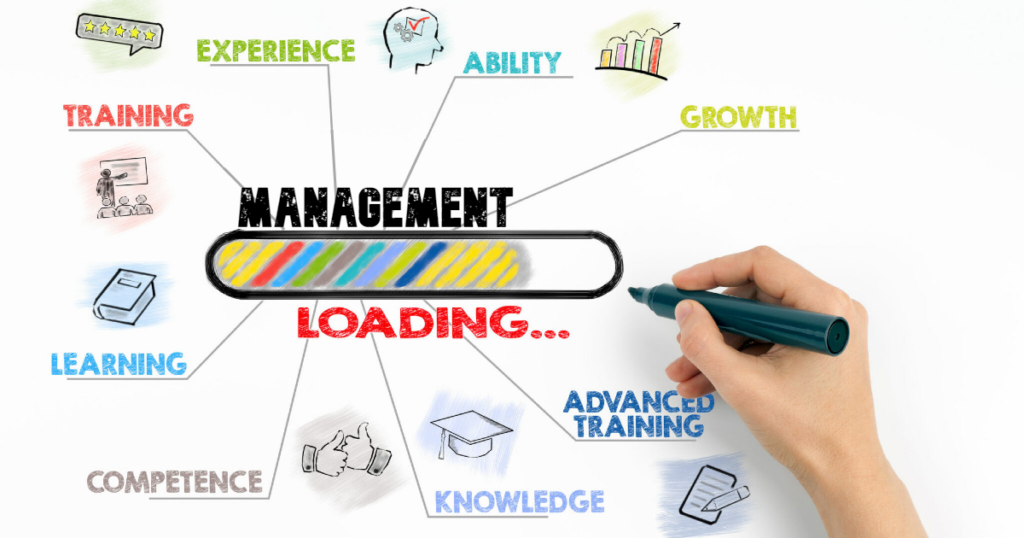
Management skills can be used in any industry or on any career path and they’re a valuable asset for just about anyone looking to move up the ladder. In this article, we will discuss how these skills can help you professionally while also offering some tips for task and project opportunities that may increase your exposure as a manager.
Management is about staying level-headed, thinking ahead and understanding that it isn’t just about yourself. There are always other factors to consider so being able to juggle the big picture with smaller details is also key.
Management is the foundation of every business and industry. It can be used in service, retail or other company types to ensure that projects run smoothly and efficiently which will improve productivity as a whole. Management is also important for those who work independently such as freelancers and entrepreneurs because it allows them to expand their client base by attracting new customers with presentations/speech-making skills while keeping old clients happy through exceptional organisation abilities.
Management skills cannot directly result in profit but they do allow teams to work together seamlessly which enables them to reach their potential as a unit rather than just as individual workers who happen to be on the same team.
In broad terms, management abilities can be anything that allows you to manage people effectively. Although certain talents will vary depending on your line of work, there are several that are common across virtually every job. The following list includes some examples of different types of management skills:
In daily life, we all run into disagreements and conflicts with our co-workers at one point or another. Being able to manage these disputes in a smooth and efficient manner will help prevent them from becoming serious problems and stop them from impacting the productivity of other members on your team.
In the office, school and other types of jobs, communication is a skill that can be used to connect with your colleagues on a professional level. Although there are many different types of communication abilities, the ones that matter most in an office setting are clear speaking skills, active listening and excellent presentation/speech-making abilities.

A person is able to motivate others when they’re able to pique their interest in an activity or task. This can be accomplished through a variety of different methods such as increasing their knowledge on the subject, encouraging them with inspirational messages and demonstrating how this particular project is beneficial to everyone involved.
During our working lives, we are inevitably assigned several projects at once which can range in scope from small to large. This style of management is about being able to control the entire process while also delegating specific tasks depending on your skill set.
In your career, you will need to stay focused in any situation and always be ready to face new challenges when they arise. Being able to change with the times makes it easier to resolve issues that might occur so being adaptable will help you climb the corporate ladder.
Time management is the ability to prioritise tasks effectively, ensuring that everyone on your team gets their jobs done in a timely manner. This allows projects to run more smoothly and meet important deadlines without sacrificing quality or other aspects of success.
Delegation is the ability to assign tasks to team members and prioritise effectively. Depending on the situation, managers may need to choose a certain task or project as their priority for whatever reason – whether it’s due date, budget constraints, etc. – which requires strong prioritisation skills that can help create an effective schedule everyone can work from efficiently.
Leadership is the ability to influence others to achieve a common goal. Leaders motivate their team members through inspiration and encouragement, ensuring that everyone pulls their weight, shares new ideas about how best to move forward with the project and creates an environment where levels of productivity are high.
Professionalism can be defined as the act of conducting yourself in a manner that’s expected of your trade. For example, people who are in the business of customer relations should be able to communicate politely and clearly with everyone they meet while maintaining a positive attitude under all circumstances.

A manager and subordinate can utilise these types of skills to work together on a project that’ll have a positive impact on everyone involved. This includes building strong relationships with team members, giving sound advice and being able to resolve disputes in a professional manner.
Managers who have effective communication skills will be able to convey instructions clearly so there’s no confusion among employees on how something should be completed. Likewise, a manager who’s able to plan and prioritise tasks effectively will be capable of creating an actionable schedule that everyone can use as a guide. This ensures that no deadlines are missed and there’s always time allotted for new elements when they arise during the project’s lifespan.
Subordinates who are good at taking direction will be able to help the team succeed by following specific instructions. The ability to manage time well can prevent people from becoming overwhelmed with too many tasks while also making it possible for them to complete assignments in a timely manner so they don’t miss deadlines or become an inconvenience to clients or other business professionals.
Different types of management skills are ideal for different industries and career paths, depending on the specific requirements or expectations of those areas. For example, managers working in creative fields such as graphic design may require innovative thinking abilities to come up with new ideas while also prioritising effectively so projects can run smoothly without sacrificing quality.
Different types of management skills are ideal for different industries and career paths, depending on the specific requirements or expectations. The most important aspect is recognising how each skill plays into their day-to-day responsibilities within a given work setting and using it to increase productivity. An individual might need management skills in the form of listening and communication while they’re in a more junior role, while someone who’s in management might need leadership skills in addition to delegation abilities. Management is a process that can change and evolve as one moves throughout their career.

Because leadership skills may have different meanings to various people, they are difficult to define. The skills that allow you to effectively talk with others and lead them toward a common objective are referred to as leadership. These skills constitute your personal brand of authority, such as charisma or confidence – characteristics that set you apart in any crowd. This article will explain what leadership skills are, how they can help you achieve your professional goals, and offer some advice on developing them.
Leadership skills are useful because they can help you achieve your career goals. Leadership is the ability to influence others and get them to work together towards a common goal. These leadership skills are important for any industry or job role, which is why it’s so critical that people take time out of their busy schedules to hone these very valuable skills.
While you’re in the early stages of your company, displaying leadership abilities can assist you in gaining clients, investors, and creditors. For example, when meeting clients for the first time, it’s your ability to lead and influence that will help you make a lasting impression on them. When you scale up your business – leadership abilities become even more important because they can be used to manage personnel. Whether you want to become the CEO of your company or manage a team of employees, leadership skills will come in handy in both scenarios.
Many company owners and managers seek leadership abilities in prospective employees. This is because good leaders possess the skills to get anything done, no matter what obstacles are in their way. Understanding the benefits of leadership skills can help you to become a better leader and successfully guide your subordinate towards success.
Leadership is a complex skill that incorporates many different talents. Some examples of skills that make a strong leader include:
A good leader knows that a project can’t be done overnight, and is able to patiently guide their employees through the process. To guide an employee through the project, good leaders must be able to understand that mistakes will happen along the way. They also need to know how to help that employee fix their mistake without it affecting the entire process.
Patience is not an easy skill to learn; however, if you’re naturally patient and can put up with setbacks (and even acknowledge them), then you’re more likely to succeed and become a better leader.
No one wants to work for someone who constantly complains about everything or shows signs of negativity. A positive attitude helps you appear more approachable as well as contribute towards your team’s morale.

A good leader knows how to motivate their employees, which keeps them engaged and interested in the work they’re doing.
No one wants a company that’s stuck in the past; creativity is important for modernising your business or project.
As an employee or employer, you will be confronted with many conflicts. A good leader knows how to resolve these conflicts in a productive and timely manner.
A good leader knows how to empathise with their employees and understand the challenges they face.
A good leader is an active listener, which helps them better understand their employees and resolve issues efficiently.
A good leader is someone that employees can trust.
A good leader will do whatever it takes to see a project through from start to finish, which helps them gain the respect of their team members.
Making swift choices with authority.
A good leader knows how to persuade employees into following their vision and mission.

Attending to the needs of other individuals, like empathy for their feelings.
Communicating well, either verbally or in writing. Being able to work well with others is an important leadership skill that can help you succeed in your career.
Having the ability to think creatively about businesses or projects will allow for innovative ideas.
Leaders should be able to prioritise their time, especially when it comes to communication.
A good leader knows how to teach and lead by example.
Being ready for unexpected projects or tasks that need to be done immediately.
Putting other people’s needs before your own, prioritising their ideas over yours.
Leaders should have a strong sense of achievement in order to feel successful.
By demonstrating leadership abilities in your company or career, you can pave the way to success. Leadership skills help you be a better leader and guide your employees towards accomplishing goals, which will help elevate your business. In any company, leadership is important for gaining respect from co-workers as well as clients.

To sharpen these essential skills, it’s helpful to take on new projects that push you outside of your comfort zone.
It can also be beneficial to take on small tasks and projects around the office, as they allow you to show off these abilities in a more practical way. For example, small task like organising meetings or events allow you to demonstrate leadership qualities like teamwork and reliability, which are important for moving up the career ladder. This will help develop leadership skills naturally over time, allowing employees or employers with this ability to become invaluable assets to any company or industry that needs them.
Depending on the industry you choose, certain types of leadership skills will be more beneficial to your career. For example, an art director may benefit from creativity and visionary thinking while a public relations representative would need active listening or persuasion abilities.
Career paths that can use these specific skill sets include marketing/advertising, business, public relations, event planning, real estate and human resource management.
While these essential traits are a good start for becoming a successful leader, there are also a number of other ways that can be helpful in elevating your career as well. A few of these include:
The first way an individual can grow their leadership skills is by taking on projects and tasks around the office that help develop those abilities over time. If there are no task options available, employees should take it upon themselves to volunteer for these kinds of roles. This will demonstrate a willingness to learn and be a team player, which can help develop leadership skills.
Next, find resources like books or podcasts about leadership and learn as much about them as possible. Many books on the subject exist, such as “On Becoming a Leader” by J. Warren Bennis. It’s also beneficial to use online resources, such as e-books or articles that summarise the main points of leadership. These will help you understand it in a more practical way.
One can also participate in leadership training programs or seminars as well. You can find both in-person and online courses that allow you to grow your leadership skills.
Leadership skills are essential in any career, but they can be particularly important for those who want to become better leaders. Understanding the different types of leadership skills and how they work will help you take on new tasks or projects that push you outside of your comfort zone. It’s also beneficial to use online resources like e-books about leadership as well as participate in seminars and training programs available both in-person and online.
Leadership skills should never stop developing, so it’s a good idea not only to read up on these topics but also stay abreast with current events related to management/leadership through podcasts or books. With a little time invested into understanding yourself more fully, taking charge of your own development journey and staying open minded, you’ll find that your leadership skills will grow exponentially over time.

When you’re working abroad, it can be difficult to calculate what your nett pay will be. There’s a lot of information about gross pay and deductions from gross pay. In this article, we break down the differences in gross vs nett pays for these countries: Singapore, Malaysia, Hong Kong, Vietnam, Philippines, Indonesia and Thailand. We also give some advice on how to best deal with taxes in different countries.
Gross pay is the amount that you’re paid before any deduction or tax. This would include your salary, allowances, bonuses and overtime payments.
Nett pay is what you will receive after all deductions have been taken out of your gross pay. Common examples of deductions include taxes, insurance premiums (health), social contributions etc. These factors make up for your ‘take home’ income which means how much money you actually get to keep in hand per month/ year.

In Malaysia (residents and non-residents) it works slightly differently where you will need to contribute to Employees Provident Fund (EPF), Social Security Organisation (SOCSO) and monthly tax deduction. The EPF was established to help employees save for a comfortable retirement by making voluntary contributions to the fund. You have the option of contributing at least 9% of your gross salary each month.
Employees who make contributions to SOCSO qualify for financial compensation in the case of work-related injuries and travel. For tax deduction, if your yearly employment income is more than RM34,000 (after EPF deductions), you must register a tax file and your employer may take a sum from your pay for monthly tax deduction payments.
Lastly, for yearly tax payments, employees in Malaysia will have to submit yearly reports of gross pay earned during that year which includes foreign employment too. You will then be taxed accordingly, this is usually between 0-30% (If this amount exceeds the total monthly tax deduction, you will have to pay the balance amount in a lump sum at the end of the taxation year).
Here are some important details for deductions and tax rates.
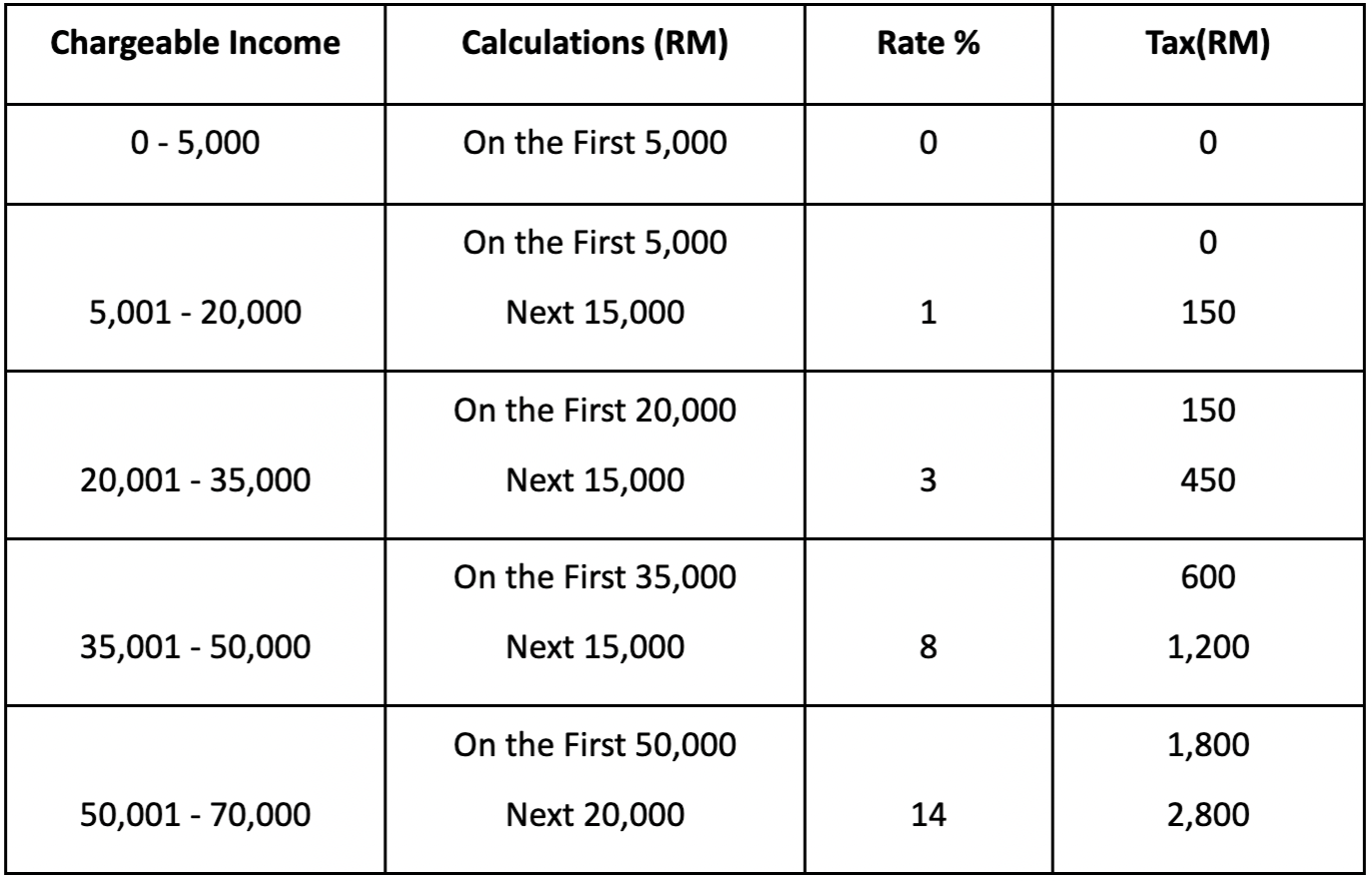


Hong Kong, as a tax haven, has especially competitive income tax rates for non-residents and company taxes. Besides tax, employees and self-employed people must pay 5% of their wages to their MPF fund (Mandatory Provident Fund). Expatriates are not subjected to MPF if they enter Hong Kong to work for less than 13 months, or if they are members of an overseas retirement system.
Individual tax rates are progressive, with the net chargeable income (i.e. assessable income after deductions and allowances) taxed at a rate of 2% and up to 17%. Hong Kong’s tax system is based on a territorial principle. This implies that only income earned in Hong Kong is taxable there. However, income that has been taxed in another jurisdiction may be excluded from the salary tax in Hong Kong, and earnings earned outside of Hong Kong can also be considered non-Hong Kong sourced (exempted from Hong Kong salaries tax). Hong Kong salaries tax does not apply to income earned in the city by visitors who spend less than 60 days there.
Here are some important details for deductions and tax rates. This is a list of what you need to do if filing your taxes this year, so make sure that it’s in order!
i. Master Trust Schemes

ii. Employer-sponsored Schemes
iii. Industry Schemes
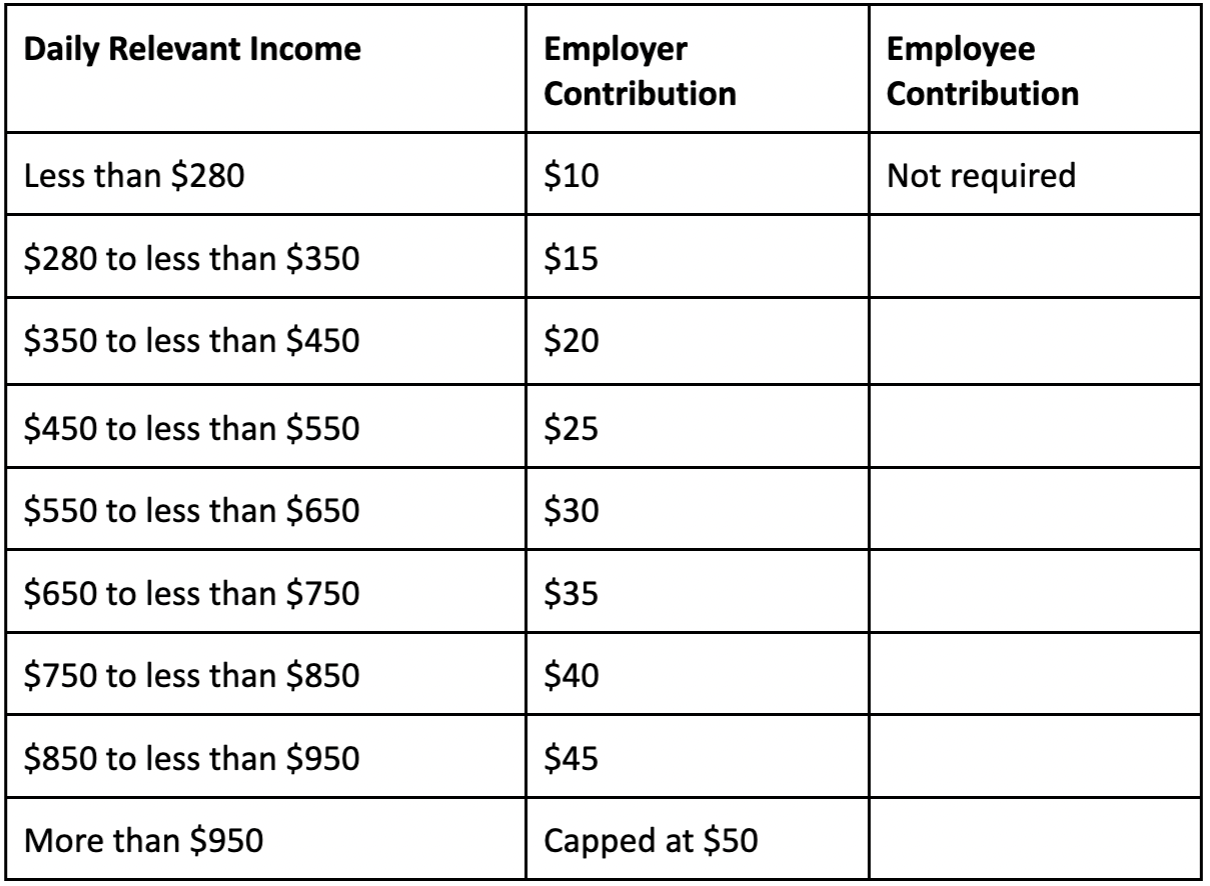
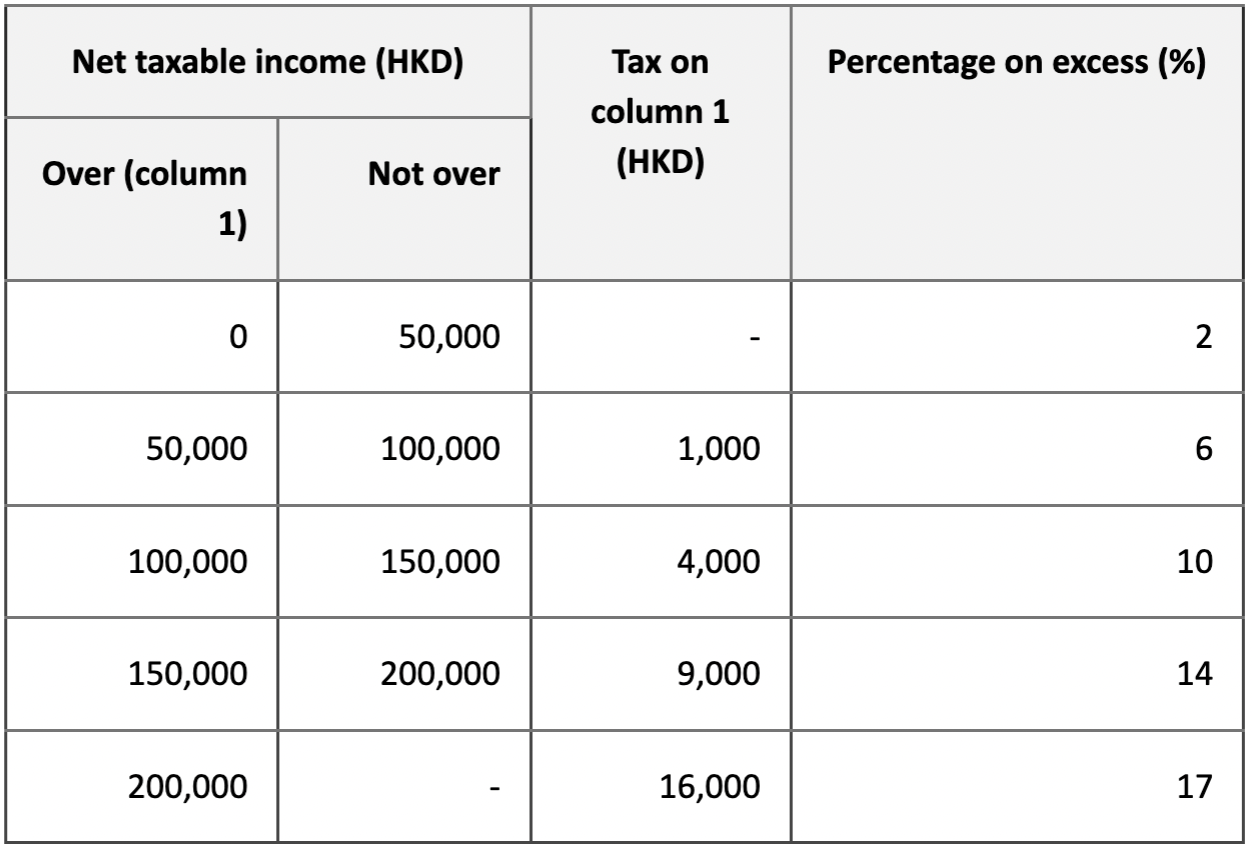

All Vietnamese citizens, including foreign workers who have resided in the country for more than six months, must contribute to the three systems. The following percentages must be paid by the employee: Social insurance (8%), health insurance (1.5%) and unemployment insurance (1%).
In Vietnam, Residents of Vietnam are taxed on their worldwide income, whereas non-residents are taxed on their Vietnam-sourced earnings only. The highest tax bracket in Vietnam is 35%, while taxes for non-residents are levied at a flat rate of 20%. Foreign currency income is converted to Vietnamese dong when calculating taxable income.
Here are the important details you need to know about deductions and tax rates.
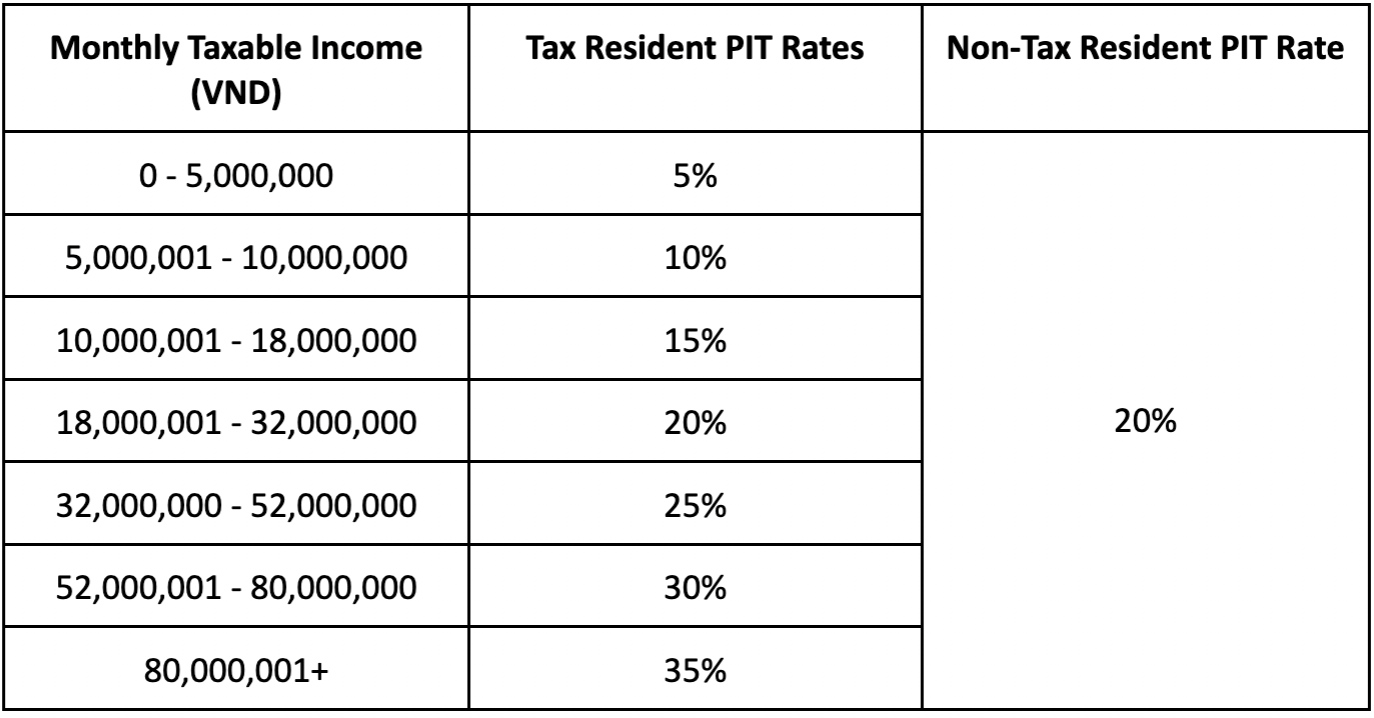


The Social Security System (SSS), the Home Development Mutual Fund (Pag-IBIG), and the Philippine Health Insurance Corporation (PhilHealth) provide social welfare services in the Philippines. Employers and employees are obliged by law to contribute to these organisations via payroll deductions as required by the Philippine Labour Code. The SSS contribution is 3.63% of an employee’s monthly salary. The Pag-IBIG fund has a monthly fixed contribution of ₱100. The employee’s wage is used to calculate the employee’s PhilHealth contribution. The employer must pay half of the premium and 50% of the monthly instalments will be taken out of the employee’s salary. The basic salary range is from ₱10,000 to ₱50,000 per month, which equals the minimal deposit of ₱275 and the maximum deposit of ₱1,375 each month.
The Filipino government taxes its citizens up to 32% no matter what their income is, regardless if it comes from the Philippines or not. Non-Filipinos are only taxed on any wages that have been earned while living there.
The deduction and tax in the Philippines is a complicated system, but it’s important for you to know the basics. Here we will break down your deductions and rates so that they make sense in context!

*due to Covid-19, the social security contributions will be at 12% for the meantime with the approval from The House of Representatives
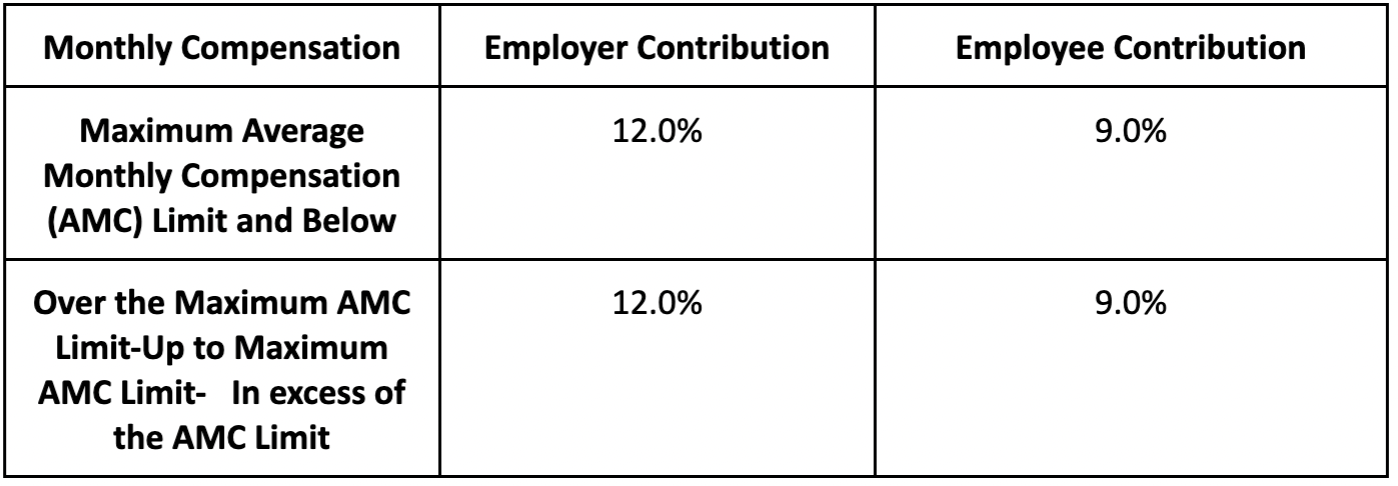
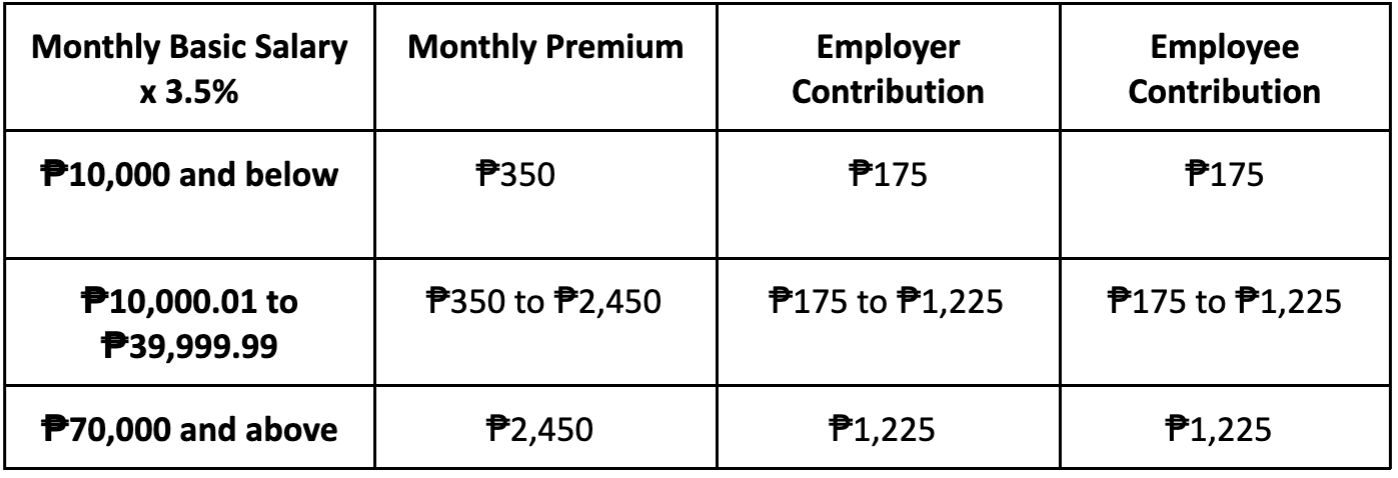


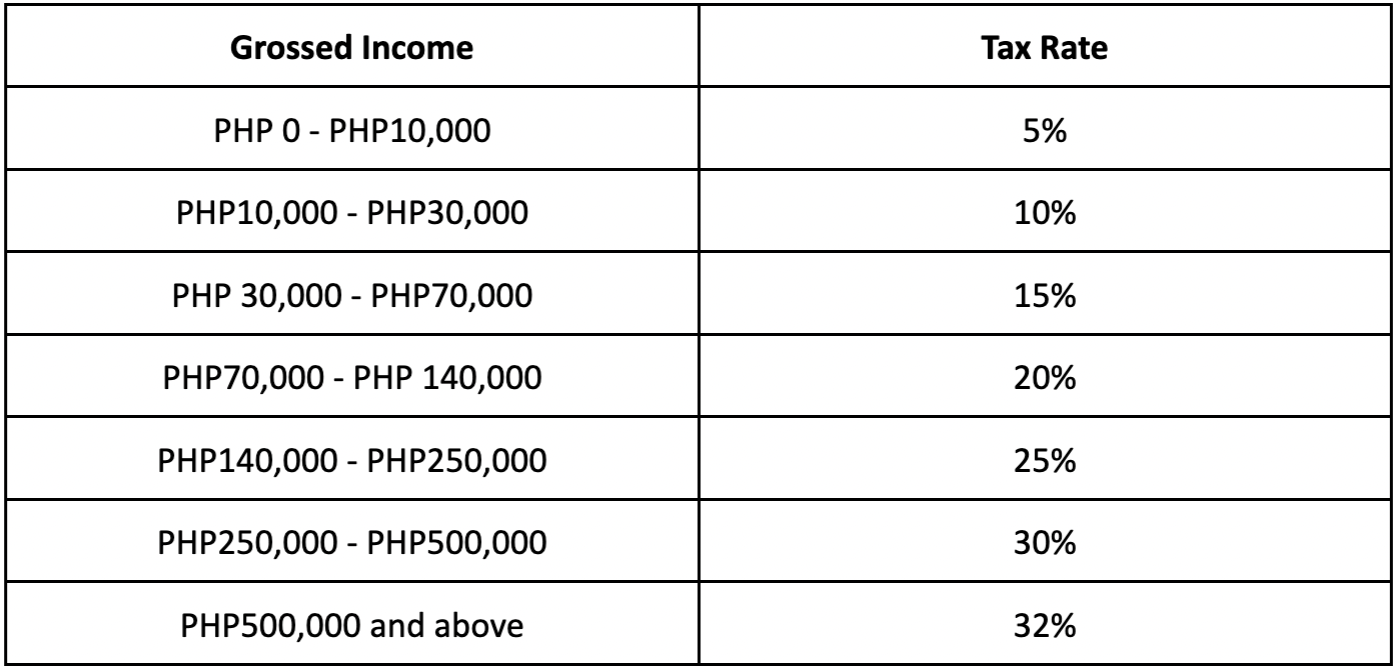

In Indonesia, social security contributions are made in three different areas: Old age contribution (2%), healthcare (1%) and pension (1%).
Resident citizens in Indonesia are taxed on their worldwide income, whereas non-residents are only taxed on locally sourced earnings. Non-resident employees are taxed with a general withholding tax of 20% on their income source within Indonesia.
Here are the important details you need to know about deductions and tax rates.





In Thailand, foreigners who don’t have an employment visa or work permit can only stay in the country for 90 days at one time before having to leave to renew their visas. If you’re staying longer than this then you will have to pay Thai personal income tax for the amount of time that exceeds 90 days, regardless of your salary is paid in Thailand or not.
There’s also a maximum allowance on what can be taxed but it varies depending on where you’re working and how much money per year is earned. Thailand has very high rates of taxation where foreigners who earn more than 800,00 baht/year automatically need to pay 30%. However, if they’re married to Thai nationals or earning less than that could get away with paying only 20%. Employees are also required to contribute 5% of their pay to Employee Social Security. The maximum monthly payment is 750 Baht.
Here are the important details you need to know about deductions and tax rates.

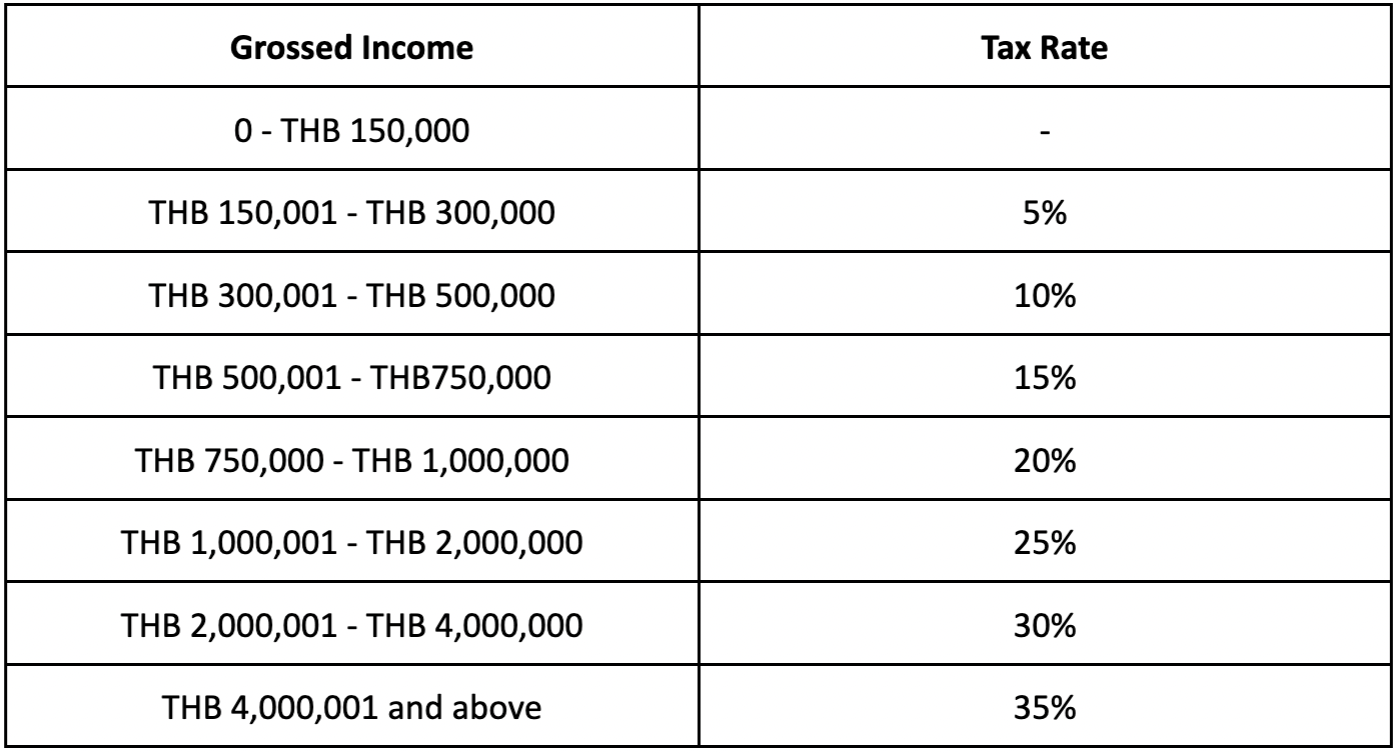
This would include:
There are several factors that can influence your take-home pay such as income tax, health insurance premiums, social security contributions etc. There isn’t too much of a difference in the amount you will receive if you were to compare gross vs nett pays with some examples listed above. However, we recommend getting advice from a tax consultant or accountant so they can help you understand how it works in your destination country. There’s no ‘one size fits all’ model when it comes to dealing with taxes and salary calculations for different countries, so working closely with a tax consultant or accountants would be the best way to go about it.
Some people think that it’s better to be paid on a gross basis as this means they will receive more money but the reality is often very different from what you might expect. Taxes and other deductions can make up for 50% of the total income which leaves you with little savings over time. No matter where in Asia or the world, always remember to keep track of all your expenses so that when tax season comes around again, you know exactly how much taxes need to be paid. We hope this article has been helpful by breaking down some differences between Gross vs Nett pays across a few different countries.

The Pomodoro Technique is a simple and effective way to work more efficiently. It’s easy to see how it would be beneficial for anyone who struggles with distractions or procrastination during the day. This post will explain how this time management system works, what you need in order to implement it, and why so many people love it.
The Pomodoro Technique is a time management system developed by Francesco Cirillo in the late 1980s. It encourages you to work with your own natural rhythm, rather than against it. You can use this technique whether you need help getting started or have trouble staying focused on a project for long periods of time. With this method, users break their day into 25-minute chunks separated, by five-minute breaks.
The first step is to identify what you need to work on. This might be a task that needs to get done in several short sprints, or it could just be a project you’re working on – but either way, this will give your brain something specific and finite to focus on. Next up: Set a timer for 25 minutes, select a task to complete, and start working on that.
If you’re having trouble focusing or getting started with your work, try setting up specific goals first: Make sure that you have the time set aside just for this activity (and nothing else) every day; this will help keep distractions out of the picture. You can even try working on the Pomodoro Technique with a friend, or setting up “office hours” to work together.
This technique is most effective when it’s combined with things like task lists and progress bars, but you can add as much structure (or as little) as you need, to make it fit your needs and preferences perfectly. You might find that doing a weekly or monthly review of your progress and goals is a great way to keep yourself on track – and if you’re having trouble staying motivated, try giving yourself rewards for hitting milestones along the way!
There are lots of different ways that you can use this technique to work more efficiently and get everything done; hopefully, it’s something that you can implement into your own life. Whether you’re using it to get work done, or just trying to focus on fitness and weight loss goals, this is a great way to keep yourself motivated and productive with any activity.

It encourages users to work with their natural rhythm rather than against it! Everyone has different levels of energy throughout the day – it’s crucial that we honour this instead of forcing ourselves through various tasks, regardless of our focus level. This method also helps prevent us from underestimating how much time certain projects actually require – an issue many people struggle with when they’re first starting something new or tackling a difficult project for the first time.
Research has shown that procrastination is not truly about laziness or lacking self-control. The root of the problem is that we’re human beings, not robots. We all have different starting points and need to honor our own natural rhythms.
The Pomodoro Technique makes it easy for anyone to just get started on something – no matter how difficult or daunting a task might seem at first. Studies have also show an effective way to break out of the avoidance cycle: Take a small first step that will make your task seem less intimidating.
For example, if you’re trying to clean your apartment, begin by starting a load of laundry or organizing one small area. By tackling something that doesn’t seem so overwhelming right away, you can build momentum and avoid the urge to procrastinate. It allows you to take on the project that’s in front of you, rather than feeling overwhelmed and stressed out by the big picture. Don’t think about the big picture – focus on the steps one at a time.
You likely know what it’s like to work on something you’re really focused on for a few hours, only to be interrupted and struggle to get back into the same state of flow. However, the abundance of information flooding through emails, team chats, and social media demand more attention than ever.

The Pomodoro Technique helps you improve your ability to work with distractions, rather than against them. It’s important to remember that distraction is not the problem – it’s how we deal with it! When something pulls our attention away from a task, there are two options: Resist or embrace.
The trick here is knowing when and where to use each one. The goal isn’t to never get distracted – the key is finding balance between giving yourself breaks when you need them, but also sticking through difficult tasks until completion. Just as long as all of these steps are taken in order of priority (i.e., don’t check Facebook if writing emails for your boss).
When planning out our projects, we tend to underestimate the time needed to complete them, even if we know similar tasks have taken longer in the past. The Pomodoro Technique encourages us to build awareness of how we’re spending our time, so that we don’t underestimate or overestimate the amount of energy and focus required.
This helps prevent us from getting stuck in perfectionistic loops, where an obsessive need for excellence can actually decrease productivity instead. This is because most tasks require more than one sprint – when you get interrupted after only 25 minutes, it’s easy to feel like something isn’t finished when really, it just needs a little extra TLC before being set aside again until tomorrow.
It allows people who are often distracted by their environment (like those with Attention Deficit Disorder) to work on what they want without feeling out-of-sorts all day long. So if you’ve got something important to do, the Pomodoro Technique is an easy way to build better habits and improve your focus – so you can be more productive at work without feeling overwhelmed.

The best part about trying something new is that there are no rules to follow. The last thing you want to do when starting out with the Pomodoro Technique is feel like you have a ton of restrictions or guidelines. Instead, think of it as an opportunity for experimentation and play around until you find what works best for your unique situation. However, here are some quick tips to get started:
It’s important not to lose track of time, but also to remember not to work for more than 25 minutes without taking a break (even if you’re in the middle of something). This is especially true when starting out with this process – it’s hard enough avoiding procrastination as it is, so just stick with five-minute increments until your body has gotten used to sitting still for longer periods of time again. Once you’ve going through an entire Pomodoro, it’s okay to take a slightly longer break (around 15-30 minutes).
So give yourself permission not to be perfect! The key is finding your own balance between giving yourself breaks when you need them but also sticking through difficult tasks until completion. And remember that sometimes “perfectionism” can actually decrease productivity instead – so don’t feel bad if something isn’t quite right or needs some TLC before being set aside again soon.
While this technique may seem silly at first, millions of people swear by the life-changing power behind it, and how much more productive their workdays become as a result. Try getting started with one task today and see what kind of difference 25 minutes makes for you!